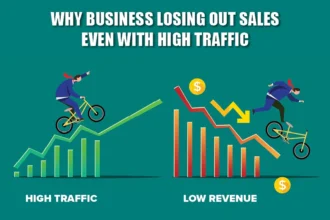Cloud computing has supported developing economies like the United States for some time now. However, nations with minimal resources and lack of infrastructure have tremendous potential to boost their position using cloud-based resources. In the case of emerging economies, appropriate financing is required to meet its population’s ever-growing and evolving demands. As a consequence, a change in the way capabilities are designed and updated has emerged. Instead of searching for hardware, businesses in emerging economies tend to opt for a “pay-per-usage” model introduced by the top cloud industry leaders.
Advantages Offered by Cloud to Emerging Markets
Below are the main benefits Cloud computing can offer to emerging markets for some years now. Such benefits were widely accepted and developed based on a large number of studies conducted.
- Usage Simplicity: As compared to traditional hardware, cloud technology is easy to install, manage, and upgrade. Less technology-savvy customers can easily use it, too. The Cloud provides a reasonably low entry barrier, and in the case of developing economies, this can be very helpful. Cloud computing enables further adaptation of the systems to the mobile environment. Compared to the laptops, the mobile model offers much broader stimulation for emerging markets. Mobile can thus often be seen as the key to the growth of technology in any emerging economy.
- Scalability: Simplicity may often be related to scalability. The companies do not need to buy more than their requirements and simply use the building blocks to develop their capabilities and, if necessary, raise the demands over time. Low and incremental investments may be represented as a scalable solution, and this can be an ideal option for underdeveloped institutions in emerging economies. Such a solution is advantageous to populous nations seeking to be a part of the global smartphone revolution.
- Lowered Cost: Simplicity and scalability help to lower costs and this is well demonstrated by this technology’s high rate of deployment across emerging markets in various sectors of industry. Owing to the risks associated with discarding the existing systems, the smaller businesses demonstrate a very low intention to introduce new solutions. Lowered costs often represent a lower rate of government risk to build infrastructure as the spending is limited and is strictly demand-driven.
High Potential for Developing Economies
The above-mentioned benefits indicate that cloud computing has a higher degree of potential effect for business firms that are ready to adopt it. This also results in exponential growth, allowing companies and economies to accelerate their multiple development measures ahead of their digital transformation. This is accomplished through the development of new business models.
So, the main impacts Cloud would have on emerging markets include:
- Enhanced Security: Cloud technology has allowed third-party developers to have a scalable security mechanism that anyone can use. It, in essence, addresses the main portion of problems often encountered in creating digital solutions.
- Developing New Products and Services: The developed nations are not carrying the burden of legacy programs. They are free to develop and build new business models and new processes. Compared to developed economies, some emerging nations are potentially better adapted to digital economies.
- Extended Scope: Because of the services offered by the number of players in the cloud market, the companies in the developed countries have gained access to the globalized workforce. These countries can make their users present in remote locations better accessible. Such people have access to the cloud worldwide without any time constraints. This has allowed higher productivity along with the diffusion of knowledge that can improve the abilities of the population as a whole and thus give them accelerated development.
Restrictions to Adoption of Cloud Adoption in Emerging Markets
The developing countries and their economies have faced several obstacles to meet the standard presented by the Western world. The next three big obstacles to the adoption of cloud computing in developed countries are:
- Infrastructure: Lack of infrastructure for every developing country to implement Cloud Computing is the most significant pitfall. Weak internet connectivity at remote locations and unequal electricity access are some of the factors that have impeded technological growth. This can also have a direct effect on reliability, while Cloud computing’s predictability remains a great asset in conducting a technological transformation. Emerging economies, however, are more resilient without current legacy systems and can easily catch up without charging any prohibitive development prices.
- Lack of Experienced Workforce: Many Asian and African countries lack the resources with the skills needed to design, manage and implement cloud solutions, especially in virtualization, data center design, security, and modern delivery networks. Governments are still challenged in these countries to build a pool of highly skilled workers with local expertise for managing newer high-technologies.
- Accepting the Dropping Costs: As compared to the developed nations, the emerging nations have spent less on legacy systems. The transition from one system to another is a significant concern for risk-prone sectors such as the financial services which seek to reduce the cost of managing loss and data ownership. These costs can be mitigated if the system transformation is built-in, and the benefits of switching to the cloud are justified. Certain cost-related issues include the possibility of vendor lock-in as well as the costs incurred during the cloud service provider transition.
Conclusion
For a developing economy, the future of cloud computing will depend heavily on institutions and the backing they receive. Institutional legitimacy is one of the main aspects of any new technology because the government has to have normative, cognitive, and regulatory frameworks. Cloud technology also depends on the industry’s development and structure, making it essential for leading cloud players to continue investing in the technology spreading infrastructure.










